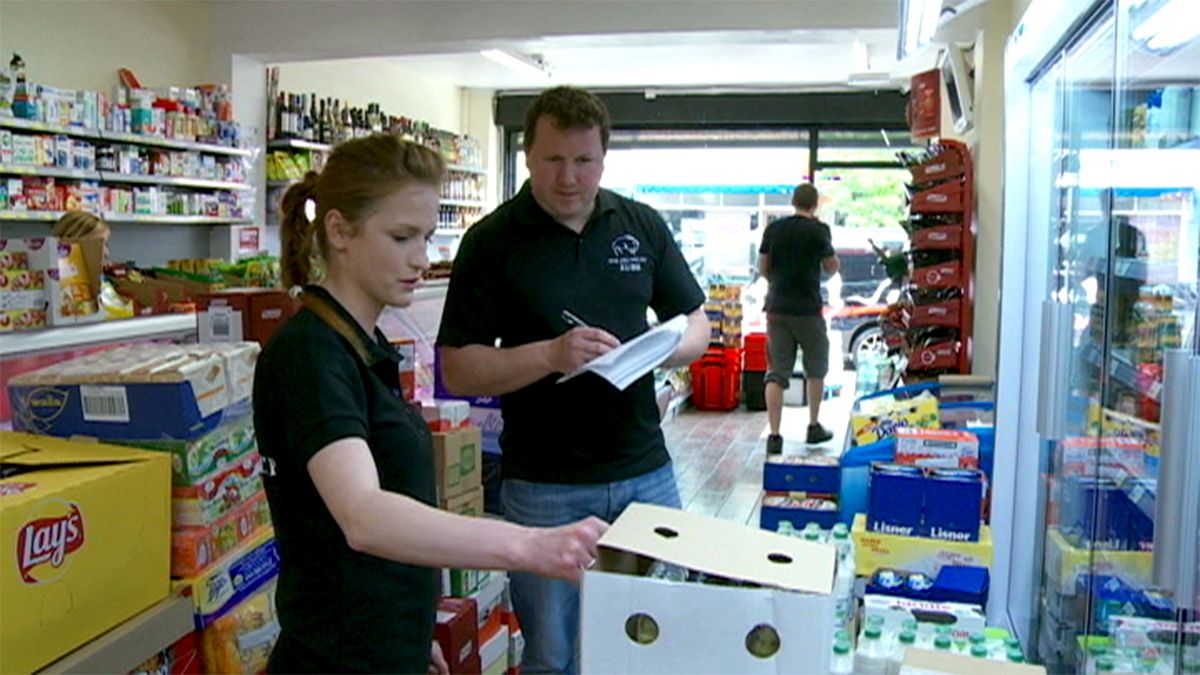Immigration is a big campaign issue in the run-up to Britain’s referendum on EU membership.
Immigration is a big campaign issue in the run-up to Britain’s referendum on EU membership.
Pawel Blachut is from Poland. He – like thousands of others – came to the UK in search of higher wages, after Poland joined the European Union in 2004.
Pawel now runs four Eastern European food stores in Oxfordshire, in central England – and hasn’t looked back.
“I was not forced to live in the UK, I have chosen to be here. I like being here. I like to be a part of the British community and I’m happy to be in Britain.
‘I pay taxes, quite a lot, but that’s life, I’m polite on the street, I’m socialising with British people. So I think my contribution to the UK is quite high,” he said.
Marta manages one of Pawel’s food stores. She’s also from Poland and arrived in Britain four years ago after her college studies. She didn’t want to go to university because of low wages in Poland. A migrant herself, Marta thinks immigration should be curbed.
“In my opinion, it should be a bit more controlled. Because you don’t know who you are letting in actually. And we are working, we are paying taxes. And then single mothers come over and they are taking the benefits that we pay for them.”
EU nationals coming to Britain are enjoying freedom of movement – one of the founding principles of the EU.
Euronews correspondent Damon Embling reported from London.
“According to official figures, net migration – that’s the number of people arriving minus the number of people leaving – reached a third of a million last year, the second highest level on record. Over half of that number coming from the EU.”
Leave campaigners say it’s too much – and argue that Britain could better control its borders outside the bloc. Remain campaigners disagree – and say the flow of people helps to boost the economy.
Economic crises in other EU countries are said to have helped to fuel current migrant numbers in Britain. But experts say the impact of a Brexit on future flows is unclear.
“It’s possible, for example, that if the UK left the EU, but then joined the European Economic Area, then there might be actually relatively little change in policy and migration would continue in the same way.
‘On the other hand, it’s possible there would be a new immigration system that applies to EU citizens that would make it much harder for people to come in. Probably, particularly people who are working in low wage jobs because traditionally the UK immigration system, like that of many other countries, has focused on selecting people who are doing skilled work,” explained Madeleine Sumption, Director Migration Observatory, University of Oxford.
In the city of Oxford immigration’s a divisive issue. At the university’s famous Oxford Union politicians like former Prime Minister Sir John Major and Lord Michael Heseltine have debated the effect of immigration on the referendum. But what do local residents think?
“There seems to be more of them here than there are of us. And a lot of them are unemployed, and a lot of them are just down there begging,” said one woman while another added: “I support immigration actually. I know that lots of British people like to feel free to go abroad and I think that we should welcome people to this country because it makes us richer and less narrow minded.”
“I think that it’s an issue, but I don’t think that by voting to leave the EU, that’s going to solve the issue. So, I’m voting to remain,” opined one man.
Pawel and Marta are not British citizens, so can’t vote in the referendum but they are not worried.
The world famous university which is Oxford’s biggest employer and has students from across the bloc has added its corporate voice to the debate calling for a vote to remain.
The outcome could have a big impact on foreign students, Pawel and Marta and people like them, who call the UK their home. Both Pawel and Marta told euronews that if the vote is to leave the EU they will apply for British nationality.
